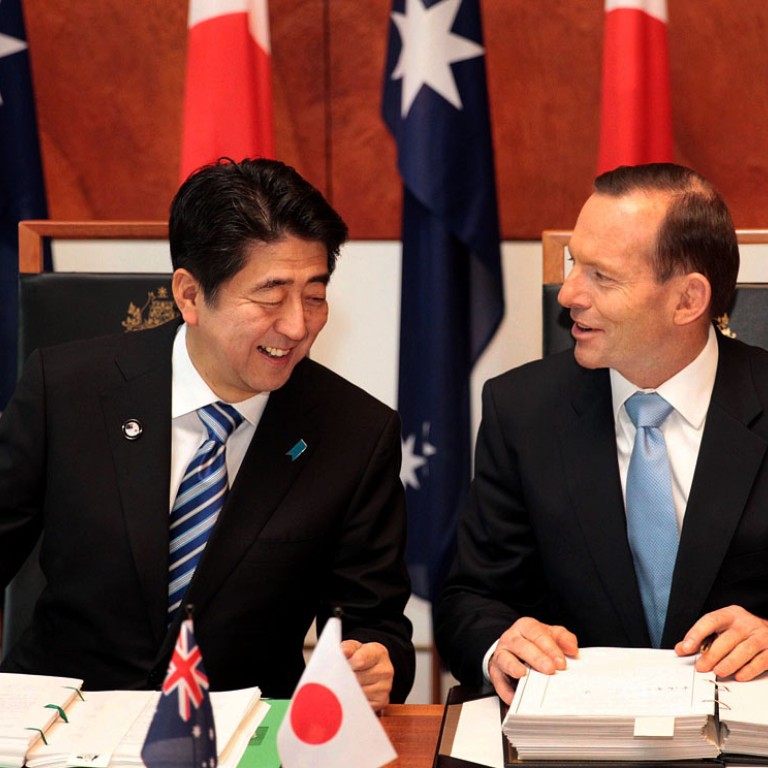
Japan PM Shinzo Abe to strengthen ties on visit to Australia
Japanese leader poised to strengthen key strategic links with Canberra
Closer defence cooperation will to take centre stage when Japanese leader Shinzo Abe visits Australia this week, with analysts saying the two countries will also shore up a burgeoning trade relationship.
It is the first visit by a Japanese prime minister since 2002 and comes just days after Abe declared his military had the right to go into battle in defence of allies, a move welcomed by Canberra but condemned by China as expansionism.
Australian Prime Minister Tony Abbott has courted Japan on security and trade matters since coming to power in September, describing their relationship as "special", as Asia adjusts to China's growing assertiveness in the region.

"I wish to build a new era for Japan-Australia relations," Abe said at Haneda airport in Tokyo shortly before his departure yesterday.
The key US allies are tipped to announce annual leadership meetings during the July 7-10 trip, while the security theme raised in Abbott's visit to Tokyo in April will continue with the finalisation of a submarine deal allowing Australia access to Japan's secret defence technologies.
Abe is also due to attend a meeting of the powerful national security committee and address parliament, the first Japanese leader to do so, in a move defence analyst Hugh White described as "a very significant gesture in its own right".
"What's very striking is just how quickly Tony Abbott has moved to change the tone of the relationship with Japan," White said, adding that the strengthening of security links "carries huge implications for Australia".
White added that any step Canberra took towards enhancing its security relationship with Tokyo would be seen by China as contrary to its strategic interests in the context of strained ties with Japan.
"The challenge for Australia is to avoid being pulled too much one way or the other," he said.
While defence matters look set to play a starring role, closer economic ties are also on the agenda as the two leaders seal a long-awaited trade deal which was agreed upon in April.
The deal gives many Australian producers and exporters a competitive advantage, with more than 97 per cent of Australia's exports to Japan qualifying for preferential or duty-free access to markets there.
China was Australia's largest trading partner, with two-way trade worth more than A$150 billion (HK$1.08 trillion) last year, while Japan was second at almost A$70 billion.
Japan set for first arms export under new rules with sensor for missile
Japan is set to approve its first arms export following relaxation of its self-imposed ban, as the nation aims to boost its global military and economic presence, a report said yesterday.
Mitsubishi Heavy Industries plans to export a high-performance sensor to the United States, which would use it in the Patriot Advanced Capability-2 (PAC-2) missile defence system to be exported to Qatar, the business daily said.
Tokyo's decision, likely to become official later this month, comes after Japan in April amended its traditional strict ban on arms exports, particularly in cases where the products might be re-exported to countries engaged in conflict. Japan had concluded that the planned US transfer of the missile to Qatar was unlikely to escalate any conflicts, the said.
Mitsubishi Heavy produces the PAC-2 sensor for Japan's Self-Defence Forces under licence from Raytheon. The US company, however, is scaling back production of PAC-2 components, as it is focusing on the next-generation PAC-3 missile interceptor system.
